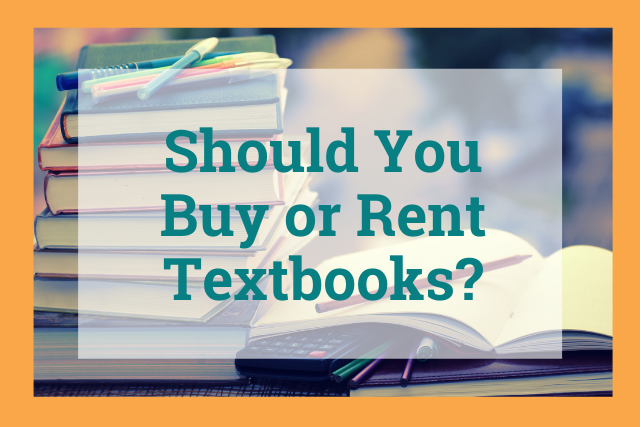
At the beginning of every semester, students decide whether to buy new or second-hand books, depending on their budget. There are benefits and downsides to each decision.
Pros of Buying Books
You Can Sell Your Textbooks Later
Once you finish your studies, you can sell the textbooks you no longer need to new students.
If you bought your books new and treated them well, you can sell them at a high price. Yet, even if you bought used books, you can still sell them for a profit with websites like BooksRun.
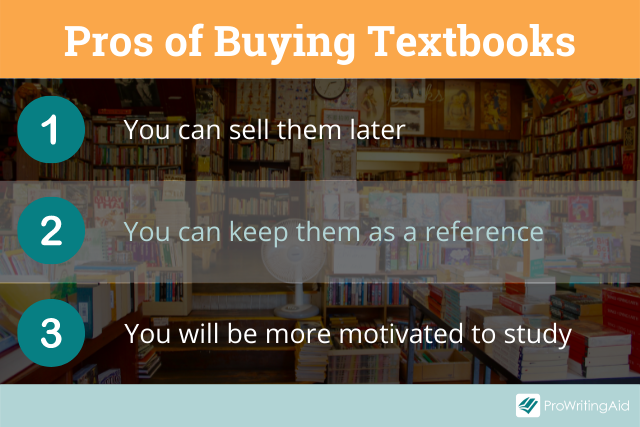
You Can Keep the Books as a Reference
Depending on your career path, you may need to keep some textbooks as a reference. You own textbooks will be useful if you go to grad school or get a job in the academic field.
You’ll Be More Motivated to Study Well
Many studies show that students who own textbooks—instead of renting them or not buying them at all—tend to do better in class. This is because they can access their studies at any time.
Cons of Buying Books
High Prices
The most significant drawback of buying textbooks is the price. Most students can’t cover this and therefore resort to alternative options, like sharing textbooks or not buying them at all.
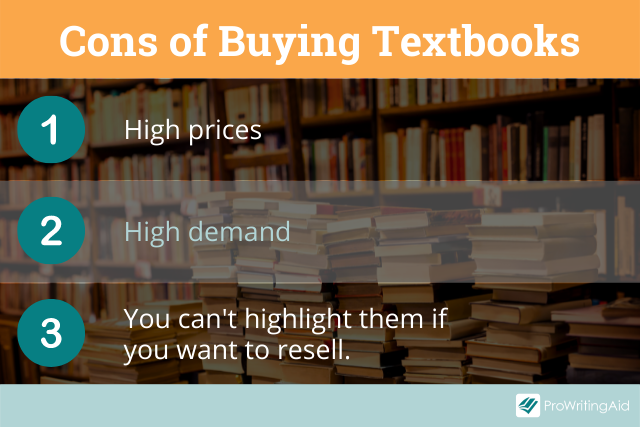
No Highlighting Is Recommended
Many students prefer to sell textbooks at the end of a semester because they are so expensive. This means they need to keep them in the best condition possible without notes in the margins or highlights.
Although notes and highlights do help you study, they will lessen your chances of selling the book at a good price later.
Friends and junior students may not mind your handwriting, while campus bookstores or online stores are unlikely to buy books that have been written on.
High Demand
At the beginning of term, textbooks are always in high demand. To make sure you don’t miss out, buy your books as soon as the reading list is released.
Renting Your College Textbooks
If you cannot afford to buy brand new books, renting textbooks is a great alternative. This service is offered in many places, from college libraries and bookstores to online bookselling platforms.
Pros of Renting Books
Less Expensive Than Buying
If you have a very limited budget, you can rent your textbooks for a short period of time (e.g. right before the exam).
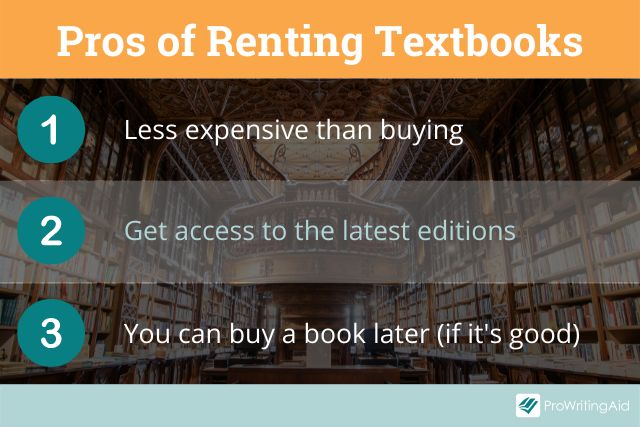
Get Access to Latest Editions
When you rent a book, you will usually get the latest edition which is rarely the case with used books.
You Can Buy a Book Later (If It’s Good)
When you rent a book, you can decide if it’s worth buying a copy later (even a used one). If it’s just preparation material for your classes, you can simply return it.
Cons of Renting Books
There Is a Return Date
The primary con of renting a book is that you have to return it. If you need to keep the book for a little longer than usual, extension services are sometimes available.
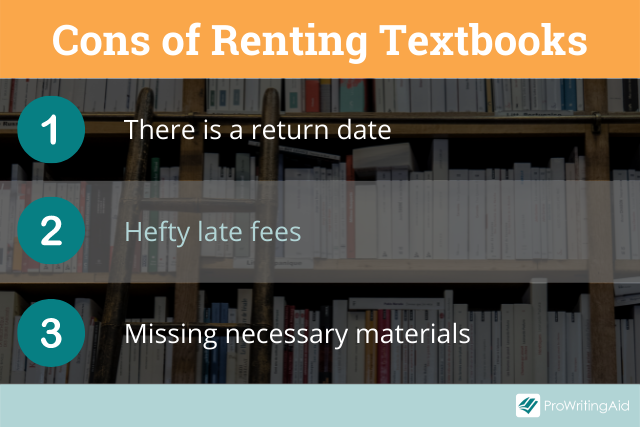
Late Fees
Most services will charge hefty late fees if you fail to return a textbook on time. To avoid this, mark down all of the return deadlines in your calendar.
Missing Materials
Some courses require supplemental materials, such as access codes, which usually come with new books. However, this is usually not the case with rentals and you may be required to pay extra fees.
Should You Rent Textbooks?
Depending on your financial situation and needs, we recommend weighing all the pros and cons of renting and buying textbooks. You can then make an informed decision about the best option for you.
Good luck with your studies!
Want to Improve Your Essay Writing Skills?
Use ProWritingAid!
Are your teachers always pulling you up on the same errors? Maybe you’re losing clarity by writing overly long sentences or using the passive voice too much. ProWritingAid helps you catch these issues in your essay before you submit it.

